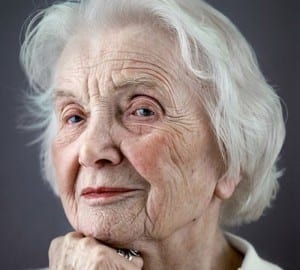 By Brenda Cannon Henley
By Brenda Cannon Henley
“The human face is no more than an empty page on which the lines of emotion and experience are transcribed.” Kinsey Millhone, Private Investigator, said in D is for Deadbeat by Sue Grafton.
Having written many times about the human heart being the custodial vessel for what a man or a woman really thinks, (Proverbs 23:7) my attention turned to another indicator while reading a series of novels by Sue Grafton. Her main character, Kinsey Millhone, is cryptic, often humorous, uncanny, intelligent, and really very good at what she does. The above quote came as Millhone was standing in the hospital morgue with the daughter of a man that had drowned the evening before. The daughter was called on to make a positive identification that the man on the cold gurney was indeed her father. She was not fond of the man because he had abandoned her mother and her when she was young and every memory she had of him, according to her, was either embarrassing, mean, or designed to swindle money from someone.
 Millhone has seen a lot of dead people in her career, and she reminded the daughter that often death tends to erase the lines of emotion and experience and brings the body back to a more youthful and solid looking individual. I remember clearly while Sharon and I were sitting with Ed Snyder on the last day of his life in Baylor-St. Luke, and the various machines had been unplugged and removed, Ed had deep furrows where pain and suffering had left their ugly marks. We all knew that Ed would be leaving soon, but we did not have a timeframe. The nurses and doctors had thought that Ed could not last long without the aid of the many machines that had been keeping him alive because his breathing had been so labored when he was intubated for the second time. His old US Marine body was simply worn out and he could not live as he was without one more miracle of God.
Millhone has seen a lot of dead people in her career, and she reminded the daughter that often death tends to erase the lines of emotion and experience and brings the body back to a more youthful and solid looking individual. I remember clearly while Sharon and I were sitting with Ed Snyder on the last day of his life in Baylor-St. Luke, and the various machines had been unplugged and removed, Ed had deep furrows where pain and suffering had left their ugly marks. We all knew that Ed would be leaving soon, but we did not have a timeframe. The nurses and doctors had thought that Ed could not last long without the aid of the many machines that had been keeping him alive because his breathing had been so labored when he was intubated for the second time. His old US Marine body was simply worn out and he could not live as he was without one more miracle of God.
The machines were completely turned off right at 12:30 on that Saturday and Nick, his wonderful US Navy trained nurse, Sharon, and I waited patiently by his bedside. When Nick realized that Sharon and I were capable on our own, he left the room to care for other patients. A kind charge nurse came by quietly and taped a beautiful calla lily print to the glass door. We later learned that the hospital has that print as a signal to others that the patient is in his last hours and that the normal rules in the very serious ICU no longer apply. Nick removed the metal rails from the bed and allowed us to sit on either side of Big Ed and talk where we were sure he could hear us. Several of the staff reminded us that hearing is generally the last sense to go and that even though Ed might not respond, he was likely still able to hear our conversation. So, we talked. We each told stories, we talked fishing, photography, young people, about his friends, Bolivar, the lakes, Casper, and anything else we thought he might want to hear.
About midway through our experience, I remembered something my mother’s hospice nurse told me. Corkey Holt said, “There are times when the patient must be told that it is acceptable to go, to leave, and that we who are left will be fine here on earth until it is our time to join them.” I wondered if that might be true of Ed, and I started out very quietly and with tears running down my face, telling Big Ed that he was loved by so many and that his old body could not hold out any longer, and that it was just fine if he rested and went on to Heaven. I looked down at the end of the bed where Nick was standing and he ever so gently nodded his head to keep on going. I looked across the bed and saw Sharon’s eyes brimming with tears, but she, too, nodded, and we held hands and I kept talking. I ended with a prayer and reached down and kissed Ed’s old cheek and he squeezed my hand slightly.
After a few minutes had passed, I noticed that his face was smoother, that the lines, and the deep furrows were going away, and that he looked like a younger Ed. I pointed this out to Sharon and to Nick and they agreed. It was rather miraculous to see the transformation, and by the time Ed left us, he looked younger, more rested than I had ever seen him, and perfectly at peace. He left without a murmur at straight up and down 6:00 PM. Nick said he was a true Marine, changing his duty station right on time.
What does our face say about us? Are we bitter, ill, mean, unhappy, or pleasant? Do we covet? Are we jealous? Do we greet others with sincerity and warmth? Are we happy in our hearts? Emotion and experience can be tough, but let’s not let it define us or be the picture folks see of us.
Brenda Cannon Henley can be reached at (409) 781-8788, or
[email protected].
[5-15-2018]

 Posted in
Posted in 























